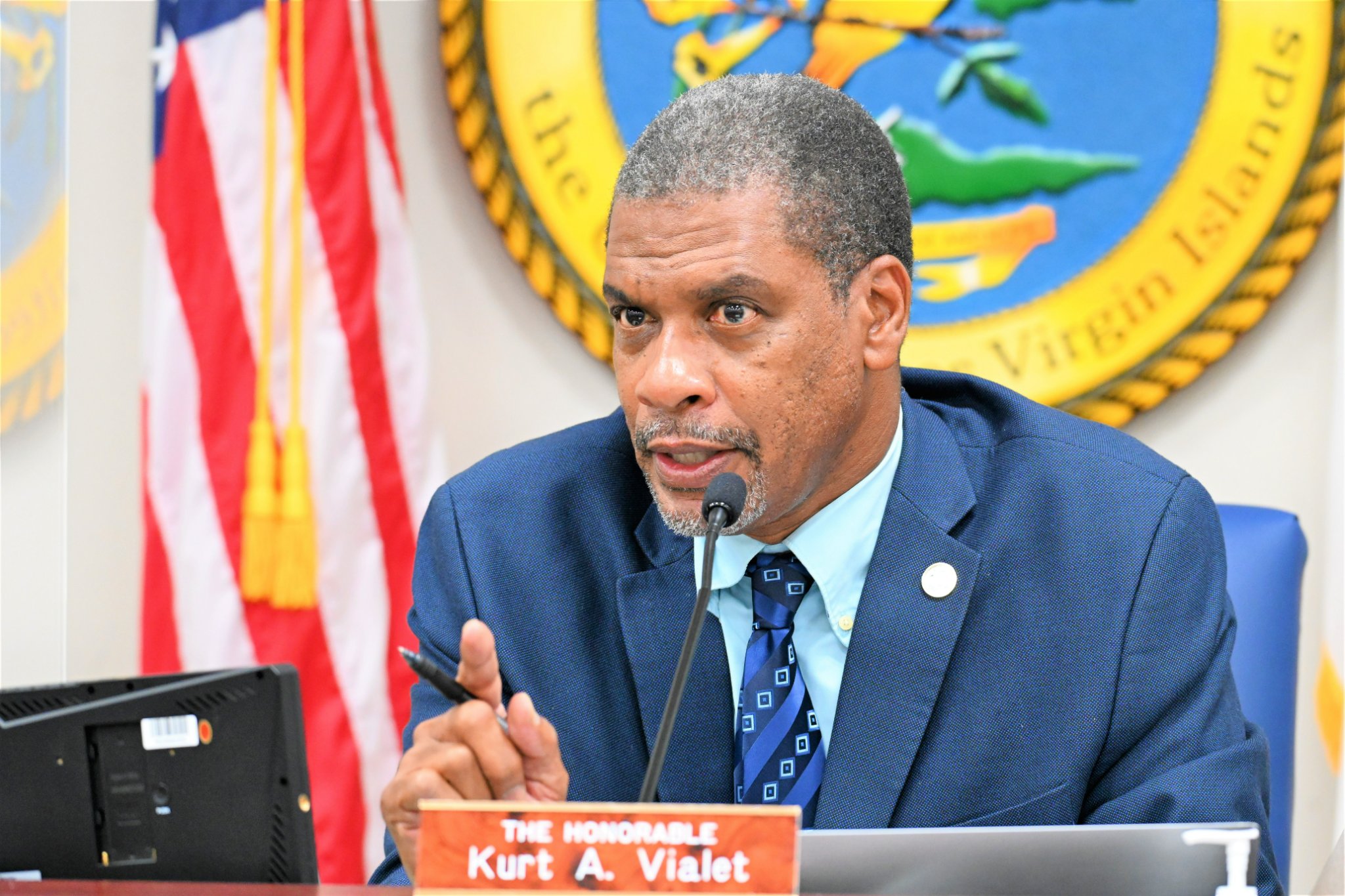
The Senate Finance Committee passed a measure on Friday that would allow contractors to recoup gross receipt taxes paid during hurricane recovery work. Among those raising doubts were the head of the Internal Revenue Bureau and the territory’s disaster recovery chief.
Bill No. 34-0197 calls for changes in the V.I. code to allow invoices submitted for payment to include a line item listing of gross receipt taxes paid. Proponents of the bill said amending the portion of Title 33, Virgin Islands Code pertaining to the submittal of bills or invoices could be viewed as effort towards creating uniformity with other U.S. jurisdictions.
They added that federal disaster agencies reimburse contractors for payment of gross receipts in other parts of the country, and the Virgin Islands should amend its laws to, and accept itemized invoices listing gross receipts to pass them along to federal partners.
If the measure were to become law, it would allow Housing Finance — doing business with the Federal Emergency Management Agency and the U.S. Department of Housing and Urban Development — to accept invoices from contractors listing payment of gross receipt taxes. It would not, however, guarantee that FEMA would reimburse, proponents said.
Bill sponsor Marvin Blyden added a clarifying amendment: it said the proposed change would apply to federally-funded projects that are ongoing or have not yet been completed or that begin after the date that the measure becomes law.
The measure won approval from Finance Committee members, with a recommendation that it be sent on to the Senate Rules Committee for further consideration.
Those who expressed misgivings included Internal Revenue Bureau Director Joel Lee and Acting Housing Finance Authority Executive Director Dayna Clendinen. Clendinen also serves as the territory’s chief disaster recovery officer.
Lee said the bill appeared to be written in a way that would benefit specific contractors who came to the territory in the early aftermath of hurricanes Irma and Maria in 2017. If those particular contractors are allowed to apply for reimbursement, “what is to prevent other businesses from requesting the same privileges and then pass the cost onto the consumer?” Lee said.
He added that the way the bill was presented to the committee would also allow contractors to seek reimbursement on projects that were already completed and closed out.
Specific figures were not discussed at length at Friday’s Rules Committee hearing, but it was suggested that reimbursements could amount to millions of dollars. Attorney Adriane Dudley, representing one contractor, testified about the considerations made about one contractor for housing repair services. Under the formula used to maximize the number of applicants, the parties agreed that repair services would average $25,000 per job.
When contractors and their representatives raised the prospect of submitting gross receipt taxes for reimbursement, Dudley said, Justice Department officials said it was not allowed. “Taxes are generally an allowable cost of federal payments,” the attorney said.
If the measure were to become law, Dudley assured lawmakers the IRB would continue to collect gross receipt taxes. In her testimony, the Housing Finance acting director agreed with Dudley’s synopsis, “Up until now the Attorney General’s Office has stated the position that contractors were responsible for payment of taxes,” Clendinen said.
She also spoke in support of the IRB director’s view. “I strongly urge the body to consider the substantial impact of changing the law for these two companies, not knowing if FEMA would honor changes in the law,” Clendinen said.
But Blyden and Finance Committee Chairman Kurt Vialet pointed out that if reimbursement were paid, IRB could also collect from the contractors’ gross receipt tax on the reimbursement. Senator Janelle Sarauw said she thought it was strange that no one seemed to have consulted FEMA about where they stood with regard to the bill.
Non-committee member Alma Francis-Heyliger questioned the propriety of changing the law to accommodate a small number of business interests. Questions also arose about whether anyone sought the opinion of officials at the V.I. Office of Disaster Recovery.


